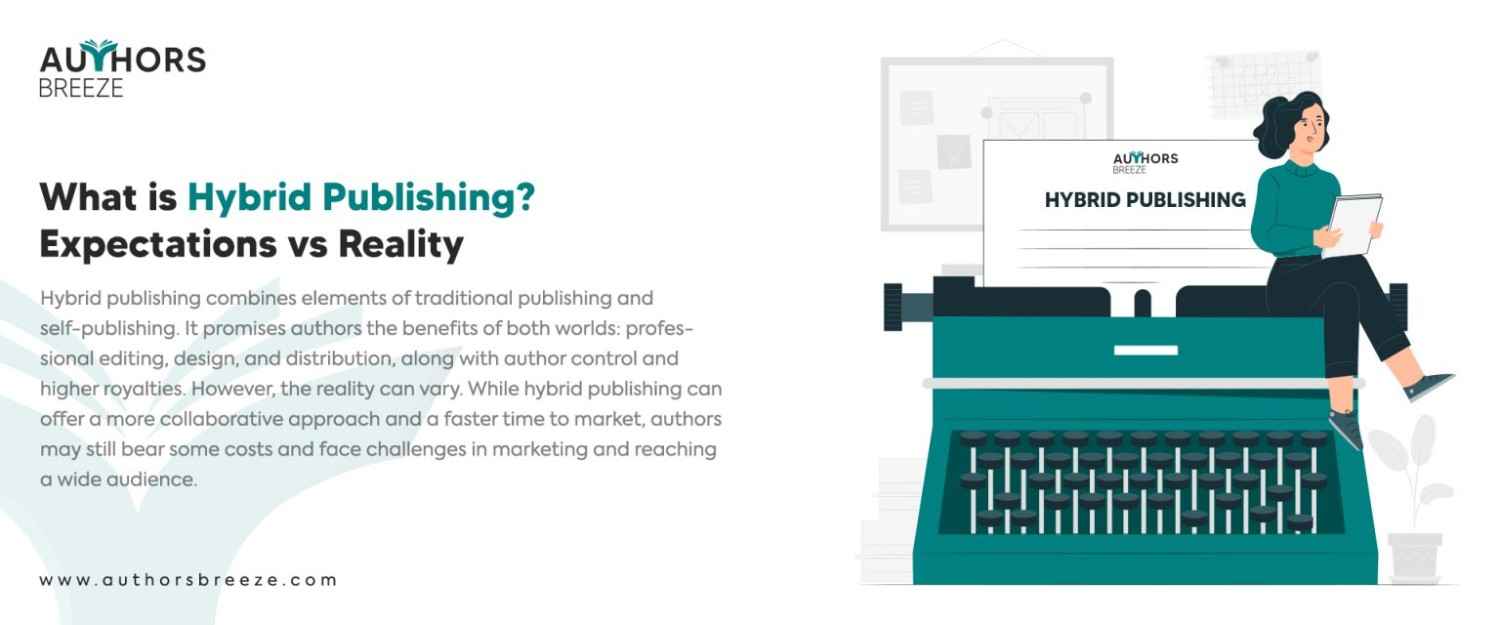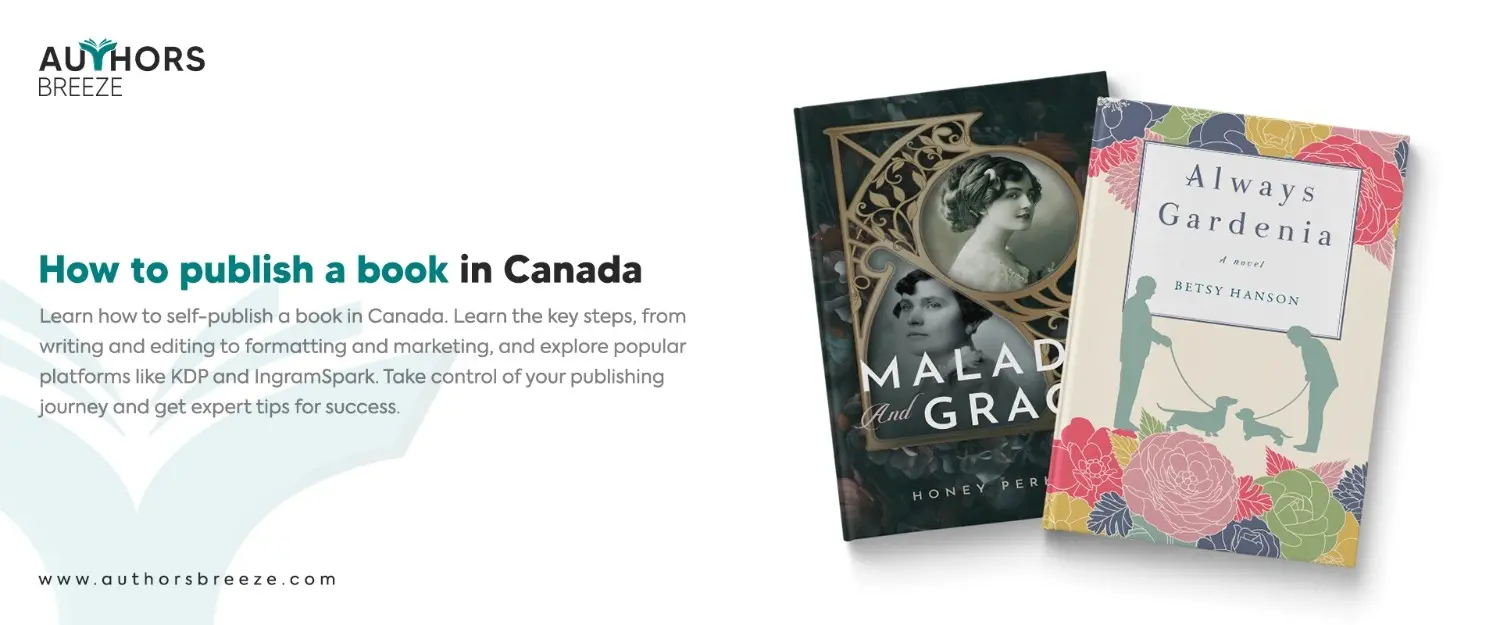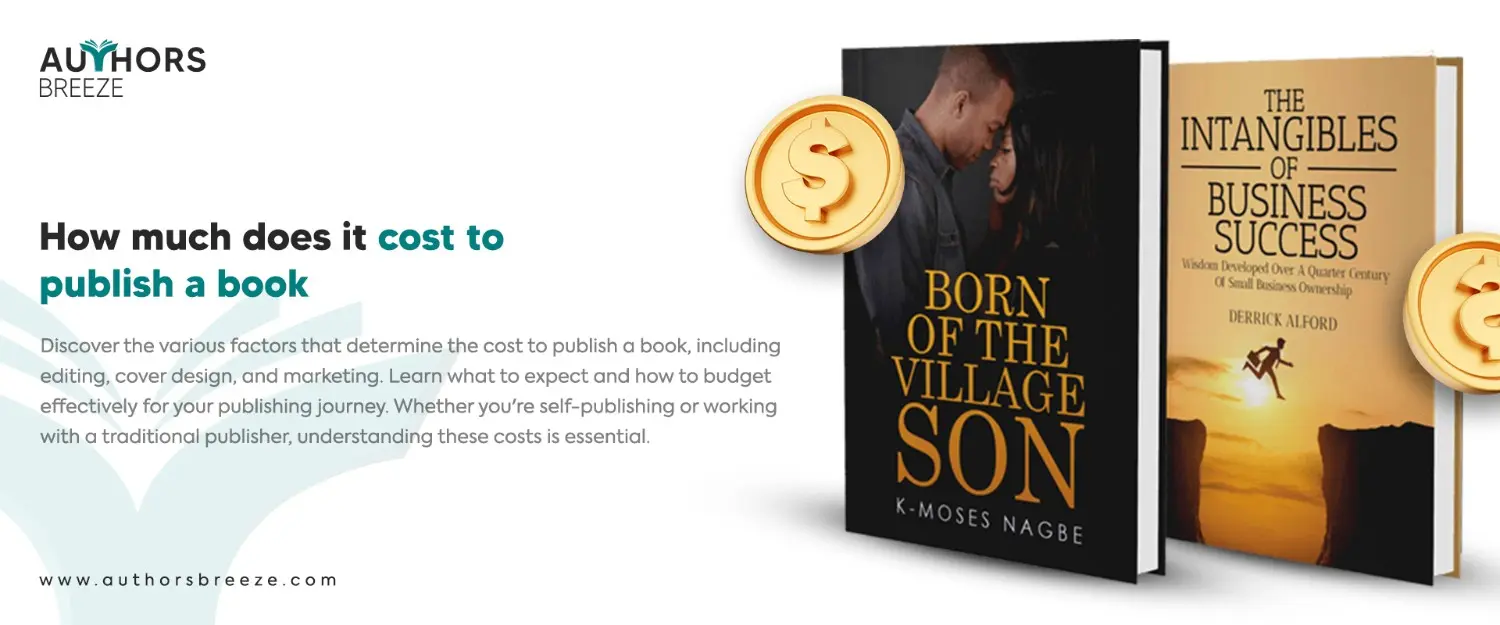Don’t Have Time to Read? Listen to this Article Instead!
If we talk about publishing, authors have more options than ever before. One option that got really popular in recent years is hybrid publishing. However, what exactly is hybrid publishing? Moreover, what can authors expect from it? You should be eager to learn all that.
Today, we will explore the reality of hybrid publishing and help authors navigate the expectations versus the actual experience. Hybrid publishing can offer many benefits. However, you should know the facts of the process before diving in. We covered everything from the basics of the hybrid model of publishing to common misconceptions and success stories, as well as the challenges and drawbacks that come with it.
What is Hybrid Publishing?
The hybrid mode of publishing is a combo of traditional and self-publishing. It offers authors the best of both worlds. Essentially, it allows authors to have a say in the publication of their work while still benefiting from the expertise and support of industry professionals.
Traditional publishing typically involves an author submitting a manuscript to a publishing house. Then the company handles the rest of the book publishing process. In exchange for these services, the author typically receives an advance payment and royalties based on book sales. Self-publishing, on the other hand, involves the author taking on the duties of editing, designing, printing, and distributing themselves.
Hybrid publishing sits somewhere in between these two models. It offers authors a customized publishing experience tailored to their needs. With hybrid publishers, the author maintains a greater degree of control over the publishing process while still having access to professional editing, design, and marketing services.
Differences between Traditional Publishing and Self-Publishing
One of the key differences between self-publishing vs traditional is the level of control the author has over the final product. With traditional publishing, the publisher has the final say over the editing, design, and marketing of the book. While the author may have some input, the publisher ultimately makes the final decisions. With self-publishing, the author has complete control over every aspect of the book’s creation and publication.
Hybrid publishing offers a middle ground between these two extremes. The author is still able to have input on the editing, design, and book advertising. However, they also have access to professional services that can help improve the final product. It can include editing and proofreading, cover design, formatting, and marketing and publicity support.
How Does Hybrid Publishing Work?
The way hybrid publishing works can vary depending on the specific publisher or service provider. In general, authors will typically submit their manuscripts to a hybrid publisher. Then, they will evaluate it to determine if it is a good fit for their program. If the manuscript is accepted, the publisher will work with the author to develop a customized publishing plan that meets their needs and goals. It can include services such as editing, cover design, and marketing support.
Unlike traditional publishing, where the publisher typically covers the costs of editing, design, and distribution, authors using a hybrid publishing model will normally need to pay for these services themselves. It can be a significant investment. However, it also means that the author retains a greater degree of control over the final product. In addition, because the author is responsible for the cost of publishing, they also typically receive a higher percentage of the book’s royalties.
Expectations vs Reality
Hybrid publishing offers you a unique opportunity to take control of the publishing process while still receiving support from publishing companies near me. However, you should have realistic expectations about the publishing process.
Expectation: Faster Publishing Process than Traditional Publishing
Hybrid publishing can be faster than traditional publishing. However, it is still a process that takes time. You should expect to spend several months on the publishing process, from editing and proofreading to cover design and book formatting.
Reality: The Publishing Process Still takes time
While hybrid publishing may be faster than traditional publishing, it requires several months of work, from editing to cover design and book formatting. You have to invest significant time and effort into the publishing process, even with the help of a publishing company.
Expectation: Greater Control Over the Publishing Process
Hybrid publishing does offer more control than traditional publishing. However, you need to give up some control in order to receive the benefits of working with a publishing company. For example, you may need to work within specific rules to ensure your book meets industry standards.
Reality: Authors Still Need to Give Up Some Control
While hybrid publishing can offer more control than traditional publishing, you still need to work within certain guidelines to ensure your book is of high quality. It means working with a specific copy editor or proofreader chosen by the publishing company.
Expectation: More Affordable Than Traditional Publishing
It can be less expensive than traditional publishing. However, you should plan for costs like copy editing and the best proofreading services to ensure your book is of the highest quality.
Reality: Costs Can Still be High
Costs can still be high with hybrid publishing, especially if you opt for services like ebook writing services. These services can add up quickly. Therefore, you should be prepared to invest significant funds into the publishing process.
Expectation: Author’s Assumption
Royalties in hybrid publishing can vary greatly depending on the author’s experience and knowledge of the publishing industry. You may have unrealistic expectations of the potential royalties you can earn, assuming you will receive a similar percentage of the book’s profits as they would in a traditional publishing arrangement.
Reality: Actual Earnings
However, in reality, the royalty rates for hybrid publishing tend to be lower than those traditional publishers offer. It is because the author is often responsible for covering the production costs of the book.
How to Determine if Hybrid Publishing is Right for You?
You should consider your goals as an author, your budget, and your willingness to invest time and effort into the publishing process to determine if hybrid publishing is right for you.
Suppose you are looking for greater control over the publishing process and are willing to invest time and money into the publishing process. In that case, hybrid publishing may be a good option for you. However, suppose you are looking for the prestige and reach of traditional publishing or are unwilling or able to invest the time and money required for hybrid publishing. In that case, traditional publishing may be a better fit.
Ultimately, whether to pursue hybrid or traditional publishing will depend on your unique goals and circumstances as an author. You can make an informed decision about which publishing model is right for you by understanding the expectations and reality of hybrid publishing.
FAQs
Are Hybrid Publishing Contracts Worth it?
Whether or not a hybrid publishing contract is worth it depends on the individual author's goals and needs. For some authors, the benefits of a hybrid publishing model - such as greater control over the publishing process and higher royalty rates - may outweigh the financial investment required. However, it's important for authors to carefully review the terms of any publishing contract, hybrid or otherwise, and to be aware of any potential risks or hidden costs.
What is the Hybrid Model of Publishing?
The hybrid model of publishing is a combo of traditional publishing and self-publishing. In this model, authors retain some control over the publishing process and contribute financially to cover some or all of the publishing costs while still receiving support from a publishing company.
What are the Pros and Cons of Hybrid Publishing?
The pros of the hybrid model include greater control over the publishing process, higher royalty rates, and access to editorial, design, and marketing support from the publisher. However, the cons may include higher upfront costs for the author and potentially less distribution and marketing support than in traditional publishing. Ghost writers for hire can be useful for authors who need additional writing support in a hybrid publishing model.
What are the Characteristics of Hybrid Publishing?
The characteristics of hybrid publishing include a collaborative approach between the author and publisher, shared financial responsibility, and greater flexibility in the publishing process. Hybrid publishing may also offer greater opportunities for niche or specialized publishing, as authors can work with publishers who have expertise in specific areas or genres.
Conclusion
Hybrid publishing is a unique model that offers authors the best of both traditional and self-publishing. However, it comes with its own set of challenges and drawbacks. Moreover, success with it is not guaranteed. However, with the right approach and mindset, it can be a viable path to publishing success.
Suppose you are interested in exploring hybrid publishing further. In that case, we encourage you to do your research and seek out reputable hybrid publishers. Look for publishers who offer transparent pricing, clear contracts, and a track record of success.






